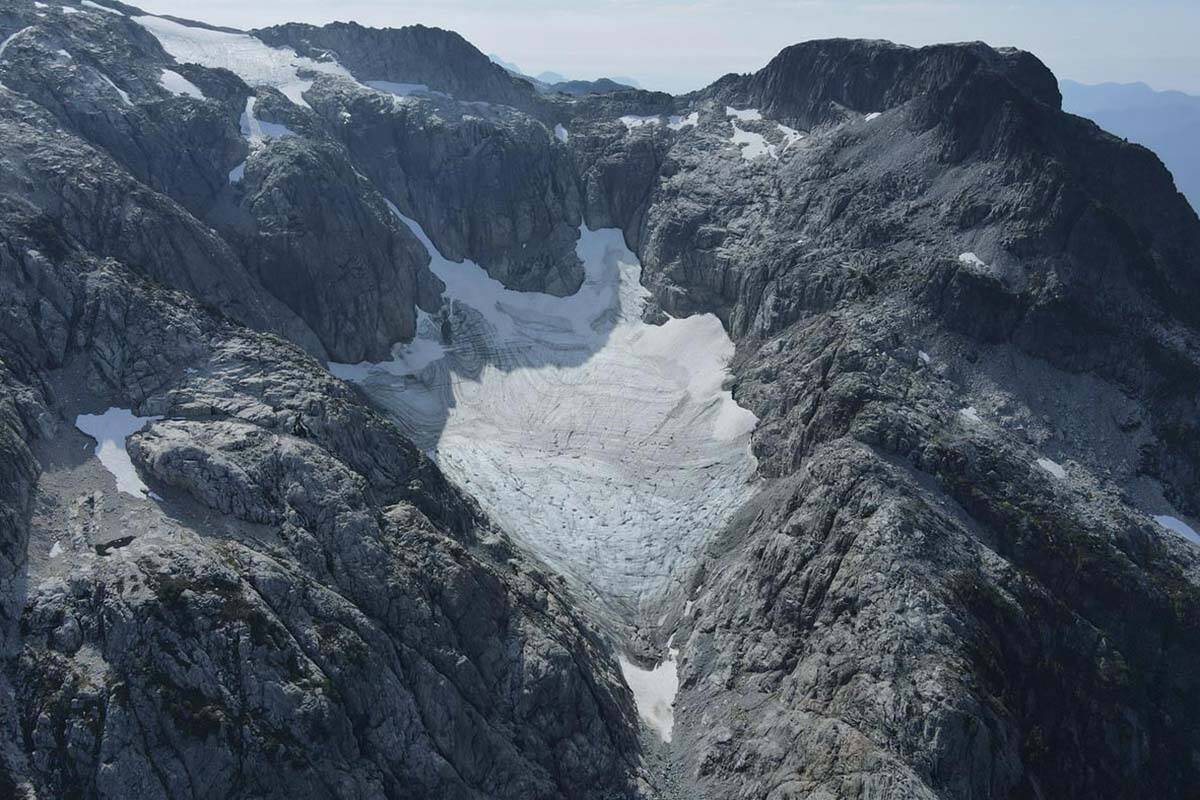A new World Meteorological Organization study finds that last year’s wildfires caused glaciers in western North America including British Columbia to lose a record amount of mass.
The report titled State of the Global Climate found that “above-average summer temperatures and record wildfire activity in western Canada” contributed to the “extreme melt” as particulates from the wildfires further darkened the surfaces of glaciers.
The darker any surface, the more heat it absorbs. Glaciers, sea ice floats along with polar caps, contribute to the ‘albedo effect’ by reflecting sunlight back into space. The more they melt, the less sun gets reflected back.
Using pulsating radars to measure distances remotely, researchers including Brian Menounos of the University of Northern British Columbia in Prince George and the Airborne Coastal Observatory of the BC-based Hakai Institute, found that, western North America experienced record glacier mass loss in 2023.Monitored glaciers in the Canadian Rockies and the southern Coast Mountains thinned by annual average of more than 3.5 metres, according to the report, with observations having started in 1965.
This thinning was especially rapid in recent years, with the rate five times higher than rates measured for the period between 2009 and 2019.
The report specifically highlights Place Glacier near Pemberton, one of the fast-shrinking glaciers in the southern Coast Mountains.
RELATED: Disappearing glaciers in B.C. put tourism, watersheds at risk: scientist
Aside from wildfires, another major factor causing the shrinkage of glaciers in 2023 was last year’s low snowpack. Thanks to an “intense spring heatwave,” most of the seasonal snow covering most glaciers had disappeared by mid-summer. Without this blanket of seasonal snow, firn — snow not yet hardened to glacial ice — was exposed to the sun, thereby causing further melting and exposing glacial ice to the sun.
Overall, the report finds that glaciers in western North America have lost an estimated nine per cent of their 2020 volume over the period 2020–2023.
Menounos, a professor of geography UNBC and a Canada Research Chair in Glacier Change, recently co-authored a study in the publication Science, forecasting the complete disappearance of an estimated 80 per cent of B.C.’s glaciers.
Glaciers cover about two per cent of B.C. and any watershed with glaciers will feel the effects of their disappearance.
While Lower Mainland and Vancouver Island rely on seasonal rain and snow-melt for their drinking water, communities on the eastern slope of the Rocky Mountains could see effects in their drinking water supplies.
More broadly, the WMO confirms that 2023 “broke every single climate indicator” as the “warmest year on record” by far with the global average temperature 1.45 degrees Celsius above the 1850–1900 average. “Never have we been so close – albeit on a temporary basis – to the 1.5° (degrees Celsius) lower limit of the Paris Agreement on climate change,” Celeste Saulo, WMO’s secretary-general, wrote in the introduction.
“Heatwaves, floods, droughts, wildfires and intense tropical cyclones wreaked havoc on every continent and caused huge socio-economic losses,” she said. “There were particularly devastating consequences for vulnerable populations who suffer disproportionate impacts.”

